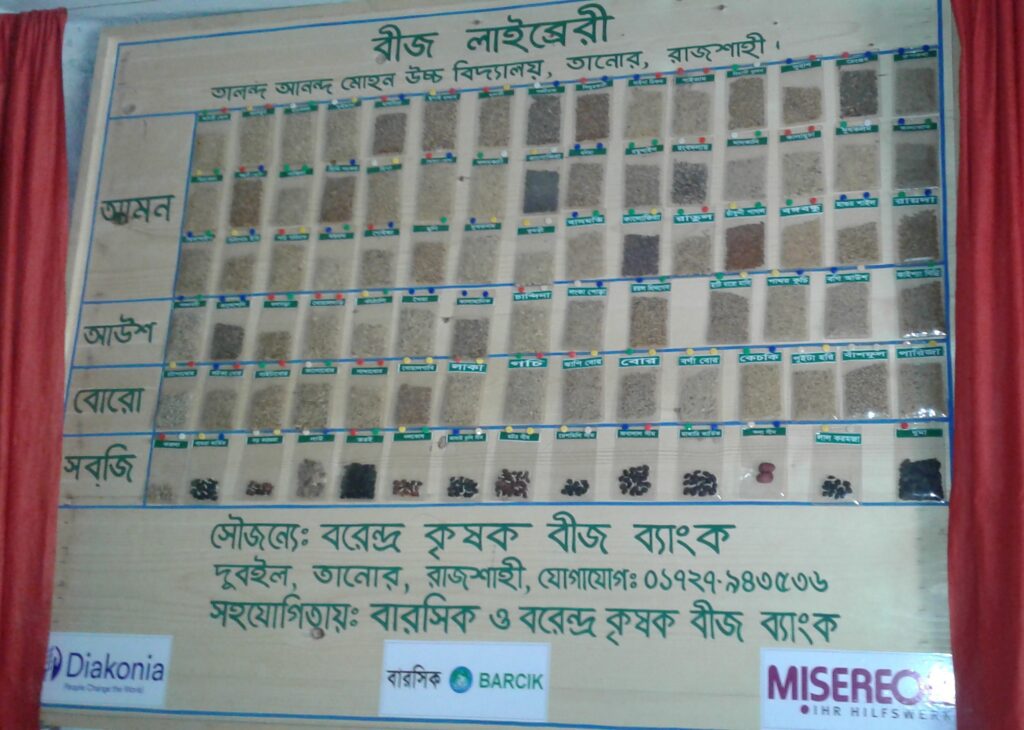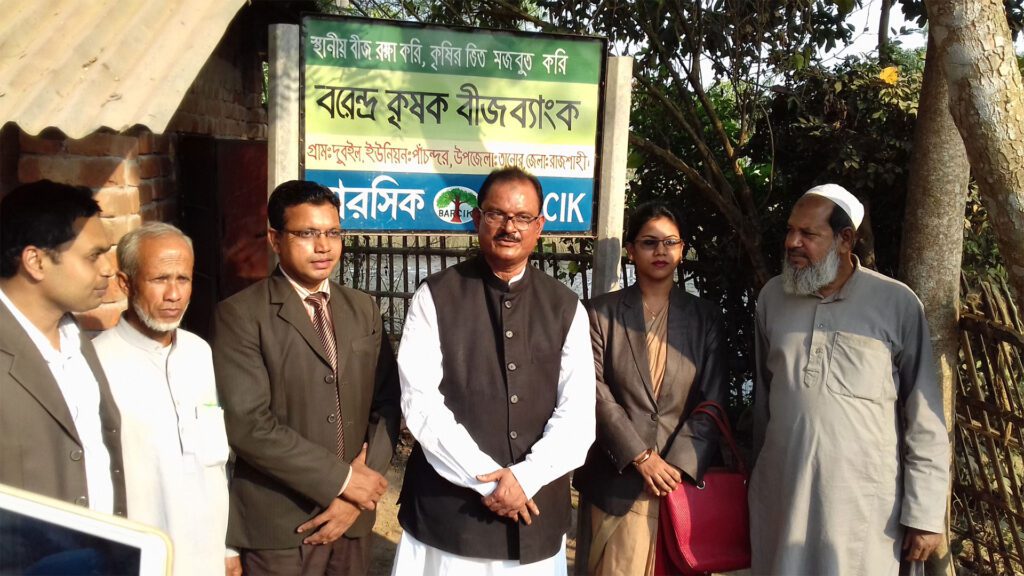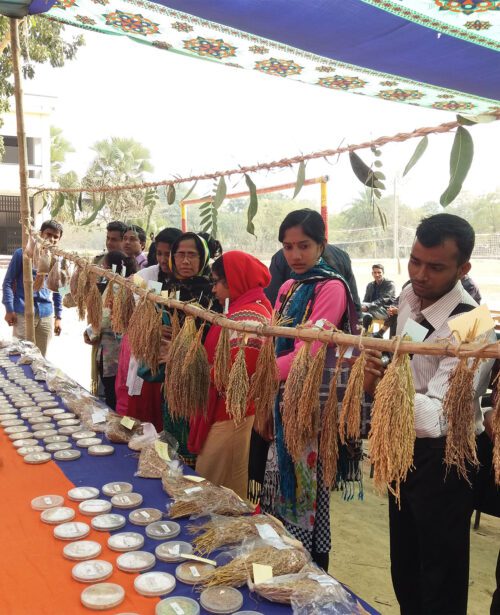Agriculture in the drought-prone High Barind Tract region faces multifarious problems due to climate change, among other factors. Characterized by reddish clay soil, sun-scorched terrace lands, and sparse vegetation like acacia and cactus, Barind Tract Agroecological Zone relies on rainfall for rice cultivation twice a year, but this is proving to be challenging given erratic and inadequate rainfall alongside depleting groundwater levels due to indiscriminate use.
To confront these challenges and overcome these issues, farmers at Dubail village, with support from BARCIK, formed the Barendra Farmers Seed Bank in 2015 by enthusiastic farmers at Dubail village of Panchandar union, Tanor upazila, under Rajshahi district. Distinguished by its unique model, the Barendra Farmers Seed Bank is entirely managed by a dedicated team of local farmers and is rooted in the rich customs of their traditional farming culture and the harmonious essence of rural lifestyle. It serves as a vital repository for endangered rice landraces and other native crop species, where the farmers develop water-resilient species; foster seed collection, preservation, and farmer-to-farmer exchange; and conserve culturally significant crop varieties from extinction.

Barendra Seed Bank organizes seed fairs to exchange seeds, provides information on the collected seeds, promotes seed preservation, and cultivates the importance of informed decisions regarding farming. It conducts interactive events where farmers collect desired seeds and after their harvest return double the amount to help other farmers receive seeds from the bank. The seed bank also collaborates with local farmers, organizations, and government and private entities to exchange and provide seeds for the benefit of peasant farming communities Beyond the seed exchange, a noteworthy endeavor is the establishment of a seed library at Anand Mohan High School in Talanda village, providing a platform to introduce school children and teenagers to the rich history of the country’s seed diversity.
Since 2017, the Barendra Farmers Seed Bank has been conducting on-farm varietals adaptability trials aimed at addressing the persistent demand for drought-tolerant, water-resilient rice landraces in the Barind Tract. In a recent inventory, Barendra Seed Bank has gathered 259 rice landraces of which 152 are Aman, eight Aus, and six Boro rice landraces. In the seed bank, a total of 95 rice landraces are showcased for display. The seed bank also provides native cultivars of pulses, oilseeds, rapeseeds, and spices’ seeds to farmers.

Barendra Farmers Seed Bank is now being considered as the last option to collect endangered landraces. The Barendra Farmers Seed Bank provided seeds to national institutions, including the Bangladesh Rice Research Institute, Bangladesh Molecular Agriculture Research Institute, universities and others. The members of Barendra Farmer’s Seed Bank therefore hope to work to solve the seed problems of farmers. In the future, Barendra Farmers Seed Bank is keen on gradually increasing its landraces collection from all over the country to support more farmers and play a role in achieving food security.
According to BARCIK Director (Agro-ecology and Food Security ABM Touhidul Alam, “The Barendra Farmers Seed Bank stands as a beacon of hope amidst the challenges faced by marginal farmers in the Barind Tract region. Through BARCIK’s grassroots efforts and people-led development approach, the seed bank has not only preserved endangered landraces but also promoted resilience against climate change and advanced agro-ecological practices and movement by restoring plant genetic resources. Its innovative initiatives, such as seed fairs, on-farm trials, and educational programs have not only benefited local farmers but also garnered recognition from national institutions. As the seed bank looks towards the future, its commitment to expanding its collection and supporting more farmers reflects a dedication to ensuring food sovereignty and preserving the rich agricultural heritage of the north-western Barind Tract Region of Bangladesh.”
(This article was originally published in BARCIK’s website on January 14 , 2024, as “Barendra Seed Bank: Context and Relevance,” written by Amreto Kumar Sarker from Rajshahi and translated by ABM Touhidul Alam. We appreciate the generosity of BARCIK for allowing us to edit and build on the original article.)


